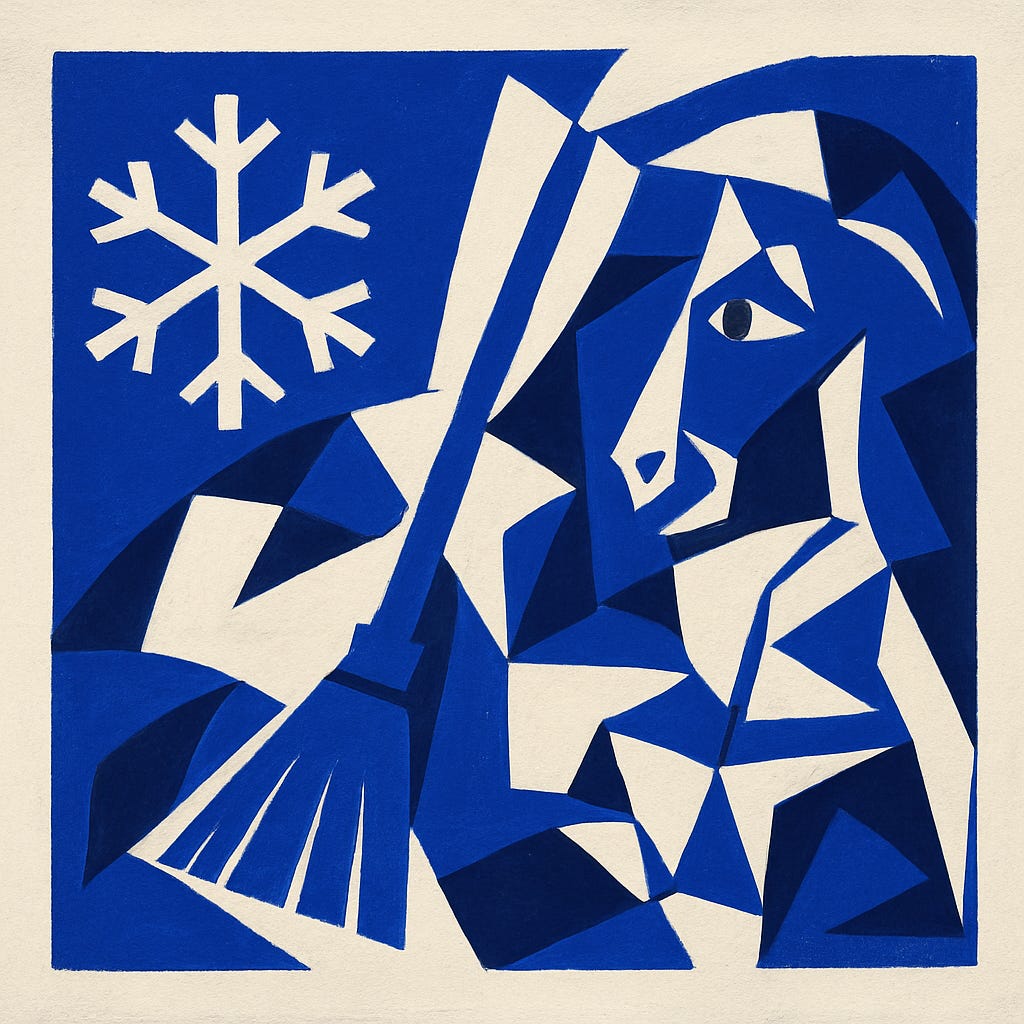Why Pay Attention To The Output Of Statistical Machines?
A short note on AI art
I believe art can be understood as anything made special. When I ask Claude to write me a poem, or stable diffusion to conjecture me an image, or suno, a song, I'm putting the art in "AI-generated art." And in general, the humans are the ones making it special.
Making, or intent. In order for a thing to be made special necessarily implies there is a subject doing the making. Consider the classic example of the broom propped up by a cleaner in the MOMA. Done deliberately, this is art, a statement. Accidentally, and it's merely a mistake. Even though it's the same broom, same artist, same place.
When we generate AI art, we're distilling that intent into its purest form. We give prompts, and then we gradually prune, and prod, and perfect, until this statistical machine gives us a combination we're happy with.
Special, or perhaps effort. There's something excessive about art – that it didn't need to be that way.
Creating art is not abjectly utilitarian. It's not the most direct path in service of a goal. At least not an obvious one.
We can use this definition to interrogate various intuitions we have, and I generally find that it lines up.
Take a snowflake. Beautiful in the aesthetic sense, excessive even, but not art. Nature had no intent.
Or that famous thought experiment of the cleaner that leaves his broomstick leaning against the wall in the MOMA, to come back the next day to a crowd appreciating the art — if there was effort (if it was deliberate) then it was art! Otherwise, not.
My intuition is happy with that.

But why pay attention to the outputs of statistical machines?
I say: craft.
My friend Chris has an elegant model of poetry as being an effective way of using language to convey higher dimensional concepts or feelings, unconstrained by our regular rules of communication. It's often the case that the most effective way to communicate a concept, or how we feel, or some abstract mixture of things, that saying it in the most clear, literal way possible doesn't get the job done. Compare a highly precise, detailed description of the horrors of war with Guernica. Or that the best way to convey my sadness is not to say it directly. Or the Klein's ultramarine paintings.
In this way, we can see the AIs getting sharply better at the craft of art, that ability to communicate, increasingly crisply and subtly, that higher-dimensional thing that we, the human, as the generators of intent, are trying to capture. Today, AI music/visual art/poetry is still cruder, less polished than what the best humans have to offer – but I'd contend, perhaps much better than the average one already.
Thanks to Chris, Claire and Malaika for discussion and thoughts.

